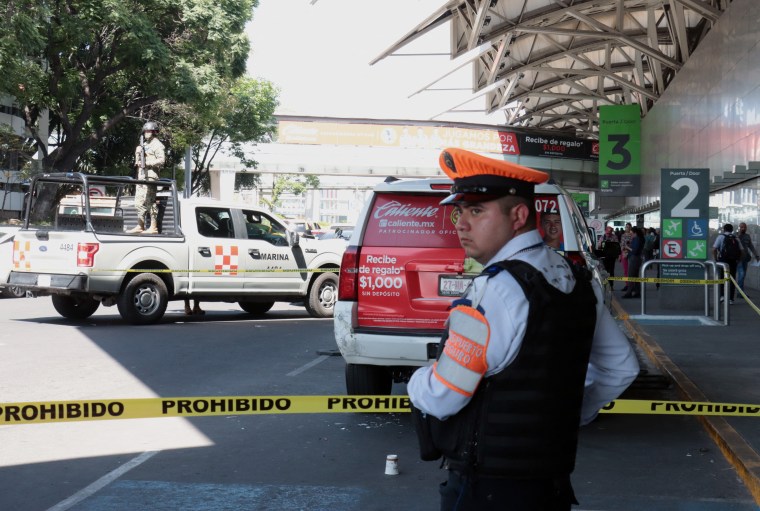The Torch is a weekly newsletter from the Committee to Protect Journalists that brings you the latest press freedom and journalist safety news from around the world. Subscribe here.
CPJ welcomes the 27.5-year sentence for one of the perpetrators in the murder of Mexican journalist Israel Vázquez Rangel, who was shot at least five times while reporting in Salamanca on November 9, 2020, and died several hours later in hospital.
An additional perpetrator in the 2020 murder was sentenced to 20 years in prison in 2021. Both convicted men were members of a local criminal gang.
“The second conviction for the brutal murder of Mexico’s Israel Vázquez Rangel is welcome news in a country where most criminals who kill journalists escape justice. However, it is troubling that Vázquez’s work as a journalist was not considered as the principal motive for the attack,” said CPJ’s Mexico representative, Jan-Albert Hootsen.
“Mexican authorities need to be far more proactive in investigating crimes against the press and ending impunity for those who target journalists.”
➡️ CPJ has documented 28 unsolved journalist murders in Mexico in the past decade—the most of any country on CPJ’s 2022 Impunity Index, which spotlights countries where journalists are murdered regularly and killers go free. The next edition of CPJ’s index will be published in late October.
⚡️ CPJ is celebrating the courage of Mexican journalist María Teresa Montaño with our 2023 International Press Freedom Award. She is the founder and editor of The Observer and investigates corruption, abuse of power, and wasteful spending in Mexico state. In 2021, she was abducted and robbed at gunpoint, demonstrating the brutal violence that reporters face in the country.
Global press freedom updates
- CPJ safety advisory: Covering Libya’s floods
- Turkish courts keep 2 reporters in pretrial detention, grant bail to bodyguards charged with attack on a journalist; journalist Sinan Aygül sentenced to 6 months
- Belarusian authorities label investigative media outlet Belarusian Investigative Center as “extremist”
- Russia blocks two more Central Asian news outlets over Ukraine war coverage
- French intelligence agents search home, detain journalist Ariane Lavrilleux for over a day over leaks investigation
- Angolan authorities charge journalist with criminal defamation over corruption report
- Four Comoros journalists appeal conviction over publicizing of sexual assault allegations
- Cameroon governor bans The Post over military coup headline
- Somalia’s Radio Baraawe off air for weeks, director in hiding after shooting
- Indian journalist Debmalya Bagchi faces criminal investigation after reporting on illicit liquor dens
- Venezuelan authorities detain, charge environmental journalist Luis Alejandro Acosta
Spotlight

Technology companies are being used by malicious actors to try to suppress online reporting around the globe. Cyberattackers used services of technology companies based in the U.S. and U.K. to target media sites from Somalia, Kosovo, and Turkmenistan.
The nonprofit organization Qurium hosts the sites and successfully defended them from these attacks, CPJ’s Senior Africa Researcher Jonathan Rozen reported.
Cyberattackers also used a Nebraska company, Rayobyte, in attempts to knock those same media sites offline, as well as at least three others in Nigeria, Kyrgyzstan, and the Philippines.
Whose services were involved?
➡️ U.S.-based Aliat Data is a “proxy” and “data scraping” company that leased thousands of IP addresses used in the attacks.
➡️ London-based IPXO sells access to IP addresses, and leased IPs used in the attacks to Aliat Data.
➡️ Arizona-based phoenixNAP operates the data center used in the attacks to direct online traffic to the media sites.
➡️ Nonprofit Qurium hosts websites for media and human rights groups and defends those sites against attacks.
A representative of Aliat Data blamed security issues and “external actors;” IPXO told CPJ it was investigating and had “suspended” the client; phoenixNAP described a misconfiguration from one of its client’s customers. As of mid-September, Aliat Data still operates IPs leased from IPXO from phoenixNAP’s servers.
Read more about the cyberattacks on three media sites in our new feature.
This year’s Clinton Global Initiative, held on the sidelines of the UN General Assembly, featured press freedom with the panel, “Journalism on the Frontlines: How Protecting Freedom of the Press Supports all Human Rights.”
CPJ President Jodie Ginsberg spoke about the escalating threats to journalists, emphasizing that journalists are being persecuted for their work, imprisoned, and pushed into exile. Governments cannot look the other way, she stated.
Watch the full panel discussion here.
What we are reading
- For some journalists, climate change coverage brings harassment, threats — Liam Scott, Voice of America
- The media must do more to protest oppressive laws like the CSA — Tanim Ahmed, The Daily Star
- Africa’s forever war: Journalists risk it all to report at DRC frontline — Emmanuel Mutaizibwa, Monitor
- Joint statement on the principles of the declaration against arbitrary detention in state-to-state relations — Global Affairs Canada
- Cyberattack on IPI: Evidence points to retaliation for press freedom work in Hungary — International Press Institute
- Lawyers for jailed reporter Evan Gershkovich ask UN to urgently declare he was arbitrarily detained — Edith M. Lederer, AP News
Do you have an Amazon Alexa-enabled device? Enable CPJ's flash briefing skill to stay up to date with the latest press freedom news from around the world.
